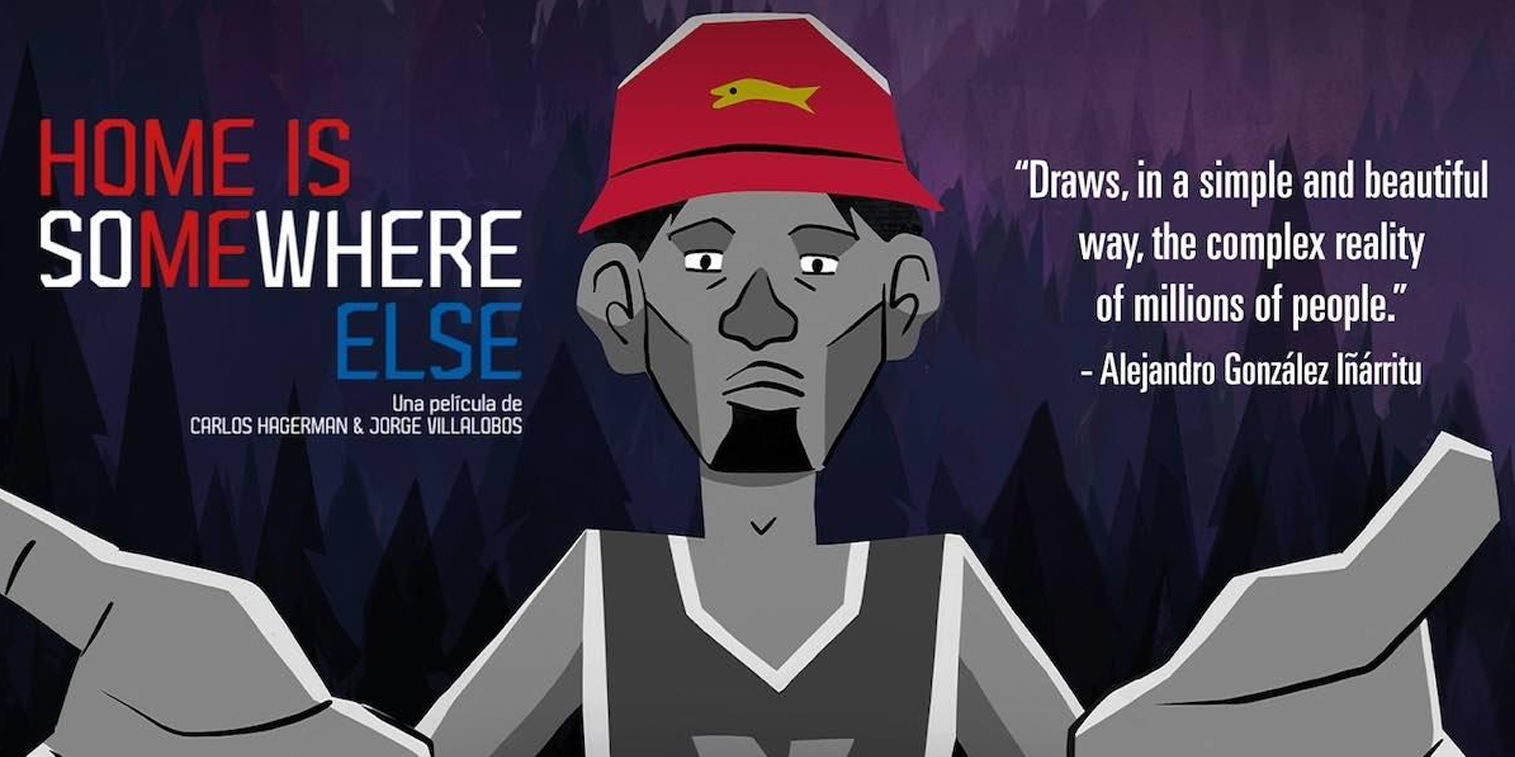“In mainstream media, the ways that migrants are represented are always either through the lens of victims or threats.”

Migration is a topic that should be familiar to most of us, not least here in The Netherlands. You hear so many languages you could not fit them all on your fingers, see people of different colors and restaurants selling foods traditional to countries miles and miles away from here. And yet, the topic we are discussing is still very westernised. Rather it being told by the migrants themselves, it is told through the western-worlds point of view.
This is what Ana Uribe Sandoval, senior lecturer at the media- and communications department here on Campus tells me, on the inauguration of her course’s film festival.
Sandoval is a coordinator for the course Media in Latin America, and as a part of her course she has chosen to organise a short film festival, available for everyone, with a focus on movies representing 5 different countries in the continent. Tonight’s movie tells the story of three people that migrated from Mexico in the US, and their struggles of being or having someone close to them getting deported. The ani-doc Home is Somewhere Else is beautiful in both its visuals and storytelling.
Being from Mexico herself, Sandoval says that this subject lies close to her heart for a few different reasons.
At this point, we had been talking about her profession and other general information on the course. But talking about migration, I can see that she gets a little emotional, yet resilience shines through in her voice as she explains that she is a migrant herself, and why it’s so important for her to explore how we live and narrate migration, especially in terms of how it is represented in the media at large.
Being aware of criticism she has faced of the course being too niche, she tells me how the objective is to talk about a well-known region, that is not talked about enough.
– We have a lot of “standard views” on how the reality in Latin America is. So how can we challenge those narratives if we only consume the media that is made in the western world telling us about the reality of those other countries?
She tells me how by doing this, she can bring her students the possibility to study a different region of the world more in depth and, to a certain degree, de-westernize the education we are given. Co-hosting the first screening of the film festival with her, Amanda Alencar’s project fits into the theme of the night perfectly. The associate professor at the department of communication has also taught subjects in the Media and Latin America course, but most importantly, she is one of the developers of the Translocal Lives project.
-The project started in the middle of the pandemic in 2021, and the idea is that the participants in the project could tell their own stories about belonging.
Similarly to what Sandoval was telling me, Alencar also believes that there is a sort of “top-down” view on how one should integrate into the city. The project therefore aims to, together with the participants, develop a program that uses different technology mediums to show what people actually do in order to “make a place”.
-Take this agency to tell their stories, rather than others doing so. Especially because in mainstream media, the ways that migrants are represented are always either through the lens of victims or threats.
By the end of the project, the 11 participants had each made their own movie about their experience migrating, with the help of professional film- and view makers as well as editors, and had their own screening night. Present were not only their friends and families, but NGO representatives and people from the municipality attended the event online. Afterwards, their documentaries were uploaded on the Translocal Lives website for others to experience as well.
When I ask her what the future for Translocal Lives is, Alencar’s face lights up, her voice takes on an even more positive tone, as she tells me how she, her associates and the participants of the project did not want the website to die. – The Translocal Lives was so interesting, a lot of the participants wanted to do a second version of that. I hope it will happen.
And they did. For over a year now, Alencar has continued to work with her team on expanding the website, turning it into a digital research hub where researchers and NGO:s can take part in both old and new projects as well as resources. Whether you are an NGO or a student, she encourages everyone to visit Translocal Lives and take a part of the knowledge.
An article by Andrada Stan

